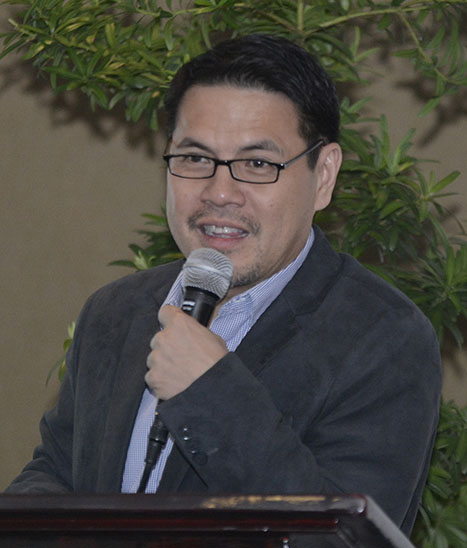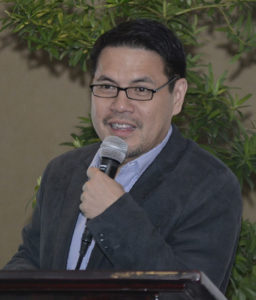

The Customs Modernization and Tariff Act (CMTA) was transmitted on May 3 to the Office of the Deputy Executive Secretary for Legal Affairs under the Office of the President, Bureau of Customs (BOC) Assessment and Operations Coordinating Group deputy commissioner Atty. Agaton Teodoro Uvero told PortCalls.
This means the measure is for signing soon by President Benigno Aquino III. Earlier the Act was signed by both the Senate president and the House speaker, after approval by the bicameral conference committee last January.
Once the measure reaches Malacañang and is not signed within 30 days by the President, it lapses into law unless vetoed.
Uvero, who was a speaker at the Mindanao Shipping Conference 2016 on April 27 in Davao City, said he does not see a veto in the picture, noting the measure has received wide-ranging support from all sectors.
The CMTA is a major overhaul of the outdated Tariff and Customs Code of the Philippines.
But Uvero said CMTA alone will not eliminate corruption at the BOC; what is needed is full automation. CMTA mandates paperless customs transactions in accordance with international standards.
Top 5 provisions
While the measure awaits the President’s signature, five priority provisions have been identified for adoption ahead of the release of the law’s implementing rules and regulations (IRR), said Uvero, who was detailed to the Department of Finance to ensure passage of CMTA.
READ: Some CMTA provisions to take effect soon — BOC
The IRR is targeted for release before the administration steps down end-June, but Uvero noted this might not be realized because the measure has over 300 provisions.
The first priority provision is on relief consignment, stipulating that donations to calamity victims must be both duty- and tax-free. Donations were previously duty-free but not value added tax-free. Under the CMTA, donations coursed through other non-government organizations that are not accredited by the Department of Social Welfare and Development will be duty- and tax-free.
BOC is also looking at issuing orders to implement the declarant provision. Under the CMTA, the engagement of customs brokers is mandatory only for two years, beyond which it is optional.
On the urgent list too is the increase in the de minimis value to P10,000 from P10 for articles brought into the country duty-free through the postal office, by courier companies, or by hand.
Yet another priority is the issuance of rules to implement the CMTA provision raising the amount of exemption for a balikbayan box to P150,000 from the previous P10,000. The same amount of exemption will be granted to returning overseas Filipino workers.
Returning residents who have stayed in a foreign country for less than five years will get a P150,000 exemption; those who have been residing abroad for more than five years but less than 10 years, P250,000; and those overseas for 10 years or more, P350,000.
The fifth priority provision is embodied in CMTA’s Section 402, which states that all goods declared for consumption should be cleared through a formal entry process, except for goods of a commercial nature with Free on Board or Free Carrier value of less than P50,000, and personal and household effects or goods that are not in commercial quantity and are imported in a passenger’s baggage or mail.
Uvero noted this eliminates the tedious process of formal entry processing air travellers usually go through upon entry into the Philippines.
Other provisions
Aside from amending existing laws, Uvero said the CMTA redefines such concepts as the free zone, which will soon include special economic zones other than those registered with the Philippine Economic Zone Authority.
Free zones will encompass Clark Freeport Zone, Poro Point Freeport Zone, John Hay Special Economic Zone, Subic Bay Freeport Zone, Aurora Special Economic Zone, Cagayan Special Economic Zone and Freeport, Zamboanga City Special Economic Zone, Freeport Area of Bataan, and other freeports to be established by law.
A permanent office that will implement the Authorized Economic Operator (AEO) program will also be created; an executive order for this has already been drafted. Right now, an ad hoc office without personnel is in charge of the program, Uvero pointed out.
The AEO is a concept under the World Customs Organization SAFE Framework of Standards to Secure and Facilitate Global Trade. It represents a customs-to-business partnership to enhance international supply chain security and facilitate movement of legitimate goods. It is a voluntary certification scheme that will help certain economic operators in the global supply chain adopt “acceptable control measures” to enhance cargo security. The BOC issued rules for the adoption of the AEO program in the Philippines in late 2013.
Another new provision states that unpaid duties, taxes, and other charges will incur legal interest of 20% per annum, computed from the date of final assessment when payment becomes due and demandable.
Advance ruling and dispute settlement, as well as alert orders, will likewise be part of the law and have simplified procedures and processes.
Regulated imports will not be seized, as BOC will only require consignees to produce the necessary import permits. If no such permits can be presented, consignees will be made to pay penalties and fines. This, Uvero said, is to prevent seized containers from languishing at terminals.
There will be differentiation in the classification of customs bonded warehouses (CBWs) for manufacturing and exports from customs facilities and warehouses, which are off-dock container freight station/container yards, arrastre operators, and bonded warehouses in airports.
Moreover, the allowed period of storage in CBWs is extended to one year from the previous three months. Those that need more than one year, such as shipbuilders, will be able to request an extension from the Customs commissioner.
Settling pending seizure cases by paying the fine or redeeming the forfeited goods is also clarified to prevent discretion on the part of customs officers.
As for abandoned shipments, Uvero said that instead of becoming government property, CMTA will have them auctioned and the proceeds used to pay for the shipment’s duties and taxes and other expenses. Any excess from the proceeds will go to the cargo owner, he said.
Under CMTA, fines and penalties for administrative cases have also been lowered, while criminal cases such as fraud and smuggling merit heftier penalties.
Uvero concluded that the CMTA provides lesser discretion for customs officials, uses international best practices, and applies clear and simplified rules. – Roumina Pablo




